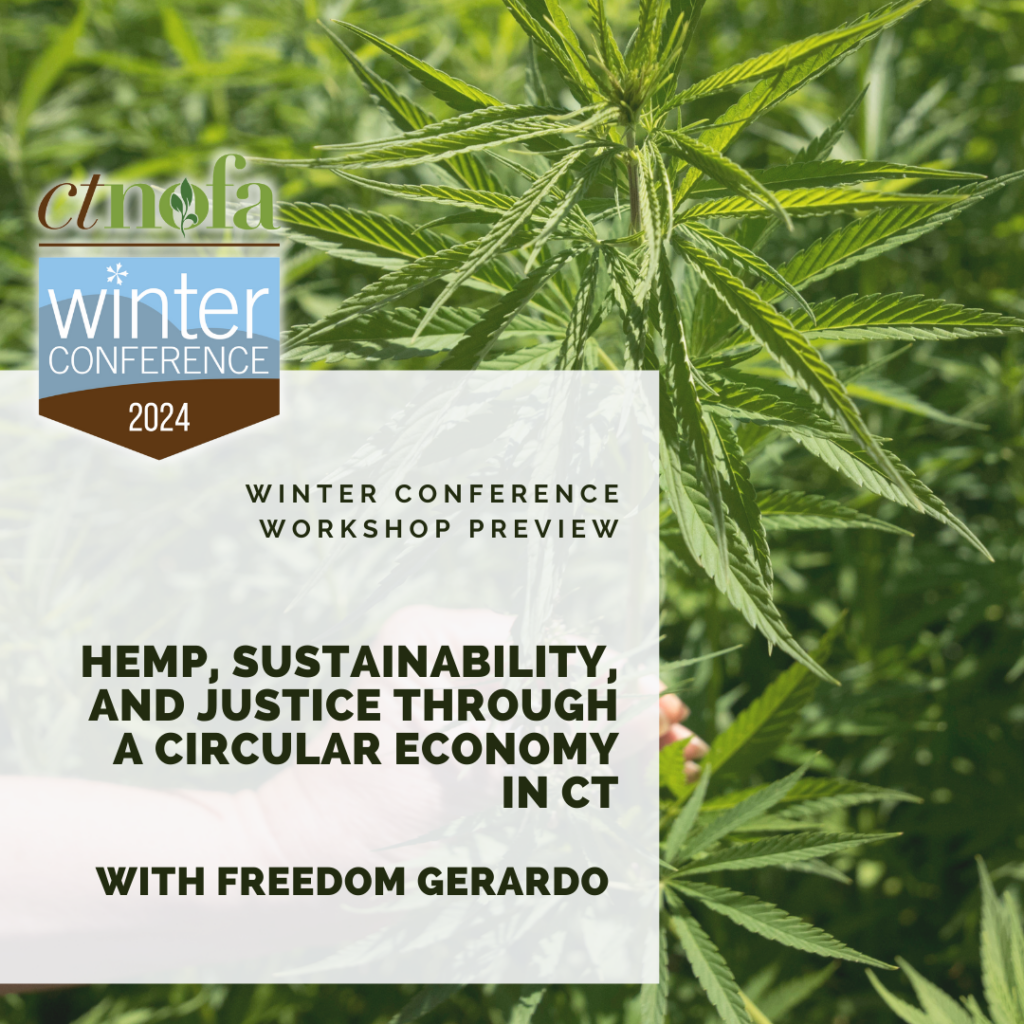
Hemp, Sustainability, and Justice Through a Circular Economy in CT
Hemp (Cannabis sativa, chemotypes II, III and IV) has been cultivated by humans for over 50,000 years for thousands of uses. Hemp cultivars have been bred for high seed (superfood), hurd, and fiber production – providing for many human uses including nutrition, clothing, building materials, rope, and netting. Hemp hurd and lime concrete (hempcrete) is a long lasting (over 900 year old structures are still in use today) and carbon negative structural building material. Hemp textiles, rope, and netting has been used for thousands of years, and were a required crop in the early United States. More recently, hemp oils have been adapted for use as fuels and feedstocks for chemical manufacturing and replacements for plastics. Shifting cultural and legal acceptance of hemp in the United States, and globally, is part of a global revolution in shifting to a green and circular economy – whereby land based products and resources are cycled through numerous interdependent economic sectors – equitably adding value to an ecosystem of human enterprises and co-produced flourishing landscapes. By the end of this workshop, participants will be equipped with the knowledge and insights needed to integrate hemp cultivation into their farming practices. By embracing hemp we can enhance crop diversity and actively participate in the global shift towards environmentally conscious practices, creating a positive impact on both social and ecological fronts. Don’t miss this opportunity to be part of the sustainable agriculture revolution in Connecticut!
